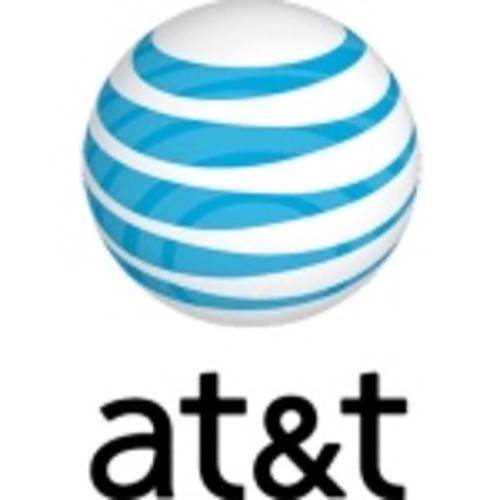Back in December 2006, as part of its agreement to merge with former regional Bell operating company BellSouth, AT&T made a pledge to the Federal Communications Commission. In that pledge, AT&T promised it would maintain a fair and neutral policy toward all Internet packet routing, applying no privileges based on packets’ origin, content, or destination.

It’s perhaps the clearest definition of net neutrality that has ever been devised. So a group of AT&T shareholders have been wondering why the company is running from it. Last month, they sought a shareholders’ vote to effectively embed AT&T’s 2006 net neutrality language as network policy. AT&T sought the Securities and Exchange Commission’s permission to block that shareholders’ proposal. Yesterday, after five Democratic senators weighed in, the SEC denied AT&T’s motion, and the proposal now must go forward.
“The open (non-discriminatory) architecture of the Internet is critical to the prosperity of our economy and society,” the proposal from Trillium Asset Management begins. After making references to the potential benefits of net neutrality policy to the economy, and after citing the then-likely merger with T-Mobile (which is now off), the Trillium proposal would resolve that AT&T “operate a neutral network with neutral routing along the company’s wireless infrastructure such that the company does not privilege, degrade or prioritize any packet transmitted over its wireless infrastructure based on its source, ownership or destination.”
Should the proposal be approved, the policy language would be amended to AT&T’s 2012 proxy statement to investors. It’s essentially the same language the company itself used in its BellSouth merger pledge. Last February 2, AT&T attorneys asked the SEC not to object to its move to exclude the language from consideration, asserting that the proposal was “fundamentally flawed.”

One reason cited by attorney David B. Harms, was that net neutrality just isn’t on the public radar any more. More specifically, Harms argued that Trillium’s Jonas Kron, who presented the proposal, had not explained why net neutrality was any more pressing an issue than it was in February 2011, when AT&T’s board concluded it wasn’t a big deal then either.
“The test is not whether an issue has merely existed for a period of time, but whether it has existed as a significant policy issue consistently over a period of time,” wrote Harms. “Mr. Kron has provided no evidence showing that net neutrality has achieved a status or character that is any different now from what it was last year. As we noted in our prior letters, if anything, the ‘debate’ over this issue appears to have subsided in both volume and intensity since last year.”
According to Harms, when the FCC codified its key principles for net neutrality regulation in December 2010, that essentially put a lid on the topic.
Amid AT&T’s other objections, according to Harms, is that Trillium’s Kron failed to explain how codifying net neutrality as the proposal defines it (and as AT&T itself defined it first) would avoid requiring the company to micromanage its network. Harms isn’t asserting that net neutrality is the same as micromanagement. He’s saying Kron did nothing to explain why it’s not.
Harms wrote, “The Proposal by its terms would flatly and specifically prohibit practices that ‘privilege, degrade or prioritize any packet,’ and according to Mr. Kron, would require the company to ‘treat all packets the same.’ But as the Company previously explained, treating all packets the same would prevent it from achieving… critically important network management objectives.”
Sprint and Verizon are also seeking permission from the SEC to exclude from consideration similar language from their proxy statements. In a letter to SEC Chair Mary Schapiro last January 31, Sen. Al Franken (D – Minn.), along with four other prominent Senate Democrats, urged Schapiro not to issue the no-action letter that would let the three telcos stop their respective motions from coming to a vote. Sen. Franken serves as Chairman of the Senate Subcommittee on Privacy, Technology, and the Law.

“Whether the government will preserve and protect today’s free and open Internet is the telecommunications and free speech issue of our time,” wrote Franken. “No other telecommunications issue has generated the same amount of public debate, legislative and regulatory action, and media attention over the last year as Internet freedom and net neutrality… Given the essential role that the Internet now plays in the U.S. and global economy, we expect that this issue will continue to be the subject of widespread public debate for years to come. There is no question in our minds that net neutrality is a matter that transcends the day-today business matters of large telecommunications companies, and it is a matter of particular concern to wireless companies. We believe that shareholders are uniquely positioned to tell corporate boards that net neutrality is an important issue and telecommunications companies should ensure equal, non-discriminatory access to all content on their networks.”
Evidently that was the clincher. Last week, the SEC Chief Counsel’s office issued a letter to AT&T’s attorneys essentially forbidding it to block the Trillium motion. “In view of the sustained public debate over the last several years concerning net neutrality and the Internet and the increasing recognition that the issue raises significant policy considerations,” wrote Attorney-Advisor Erin E. Martin, “we do not believe that AT&T may omit the proposal from its proxy materials.”
In a statement today e-mailed to RWW, Sen. Franken said, “I’m a fervent believer that net neutrality is the free speech issue of our time, and today’s decision by the SEC was a big win in the fight to maintain a free and open Internet.”
Stock image by Shutterstock.com

















